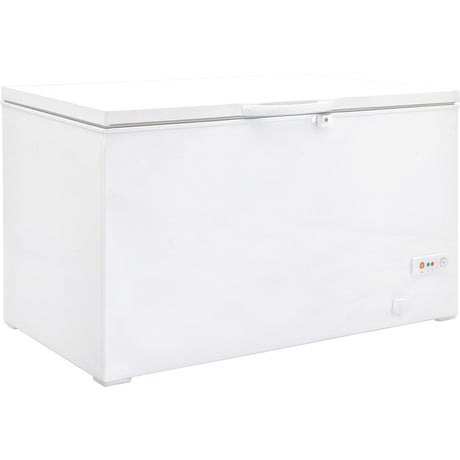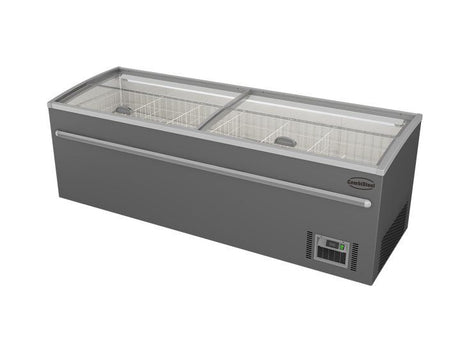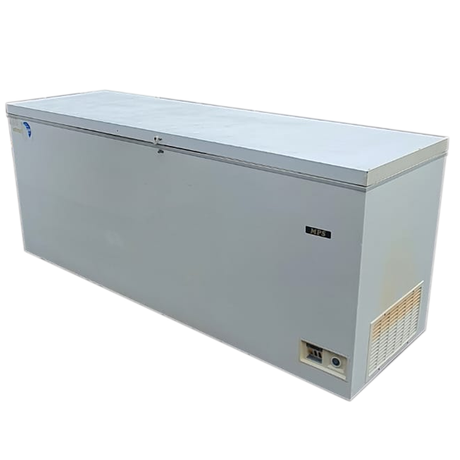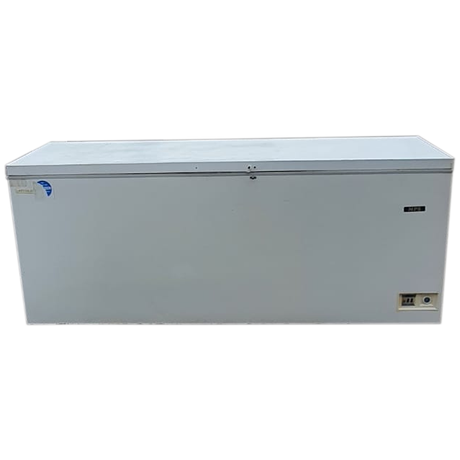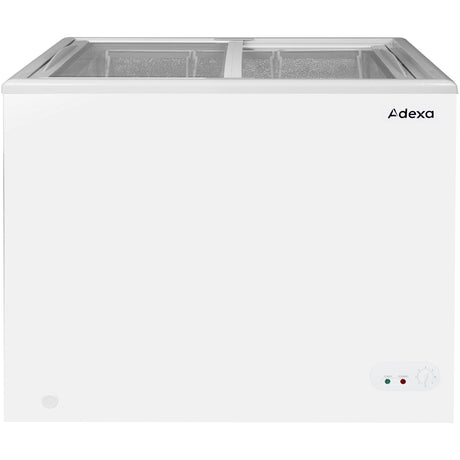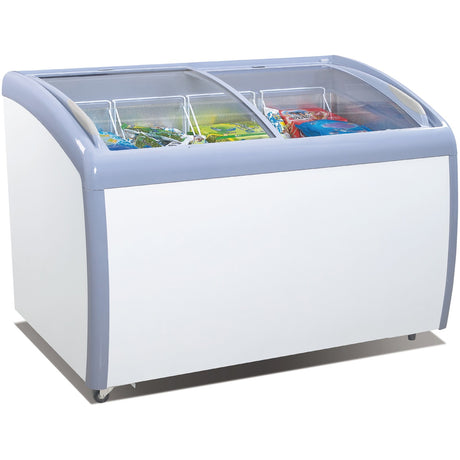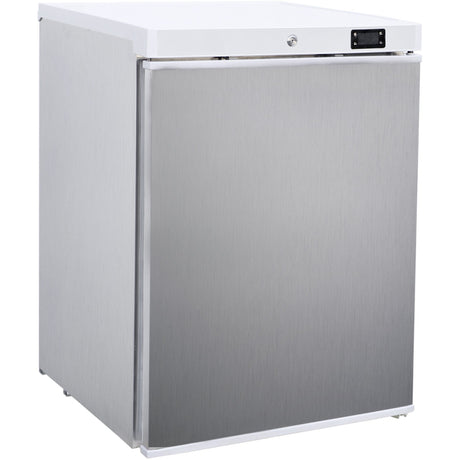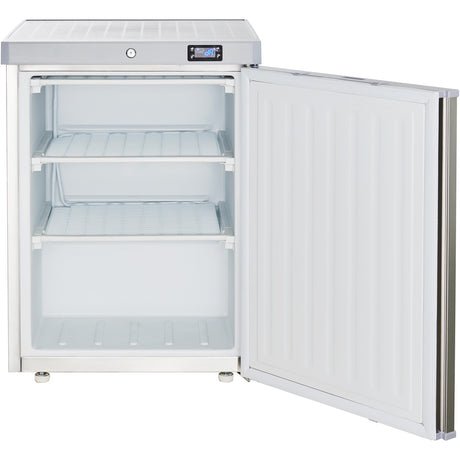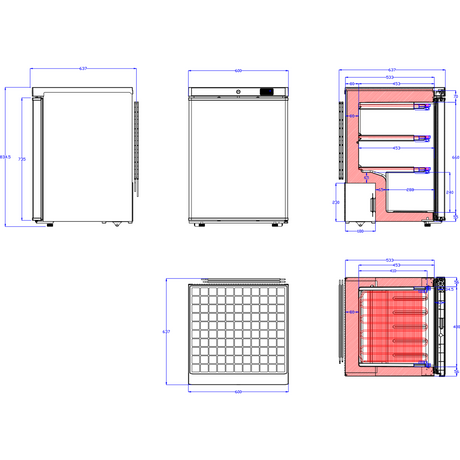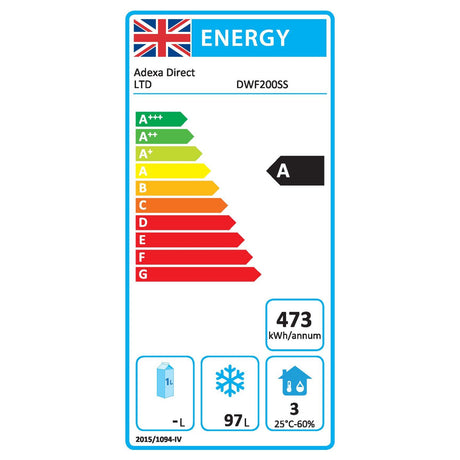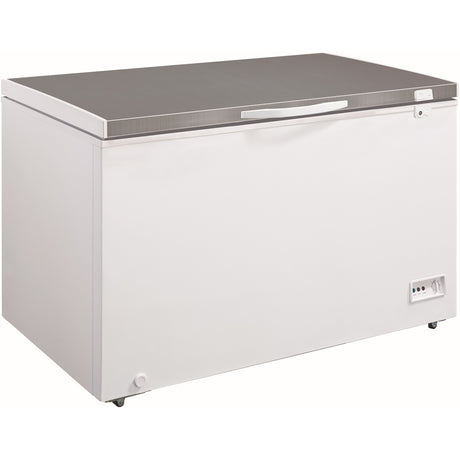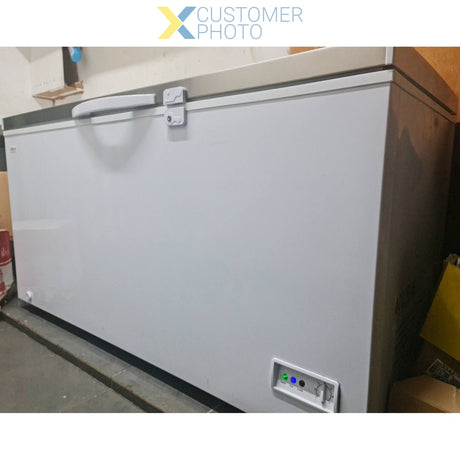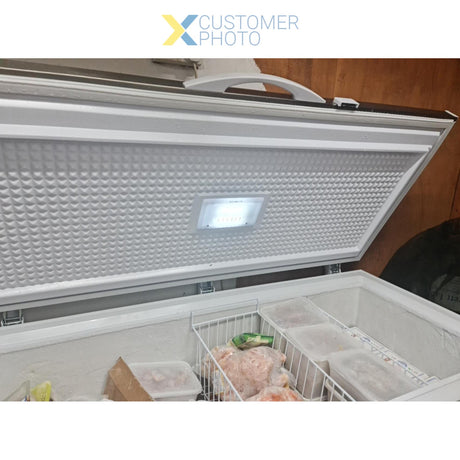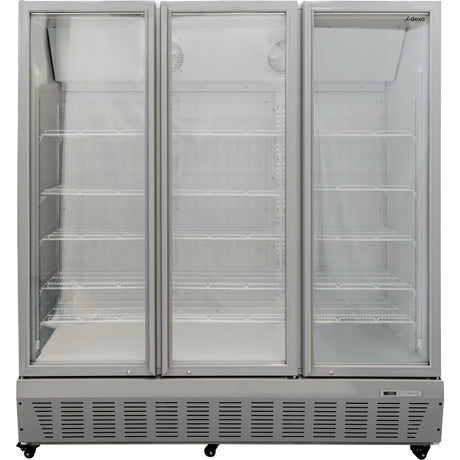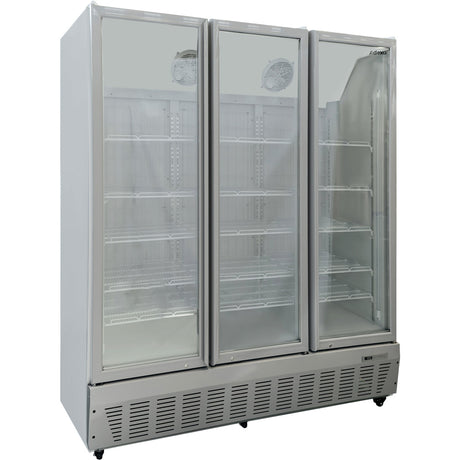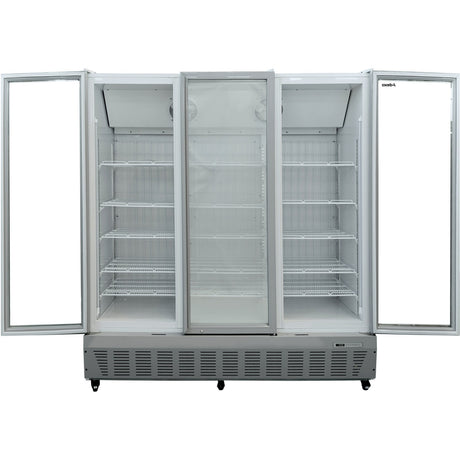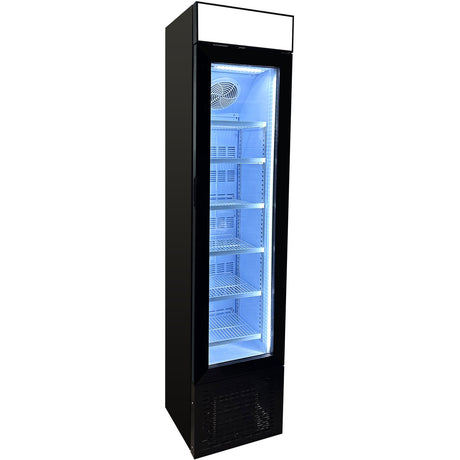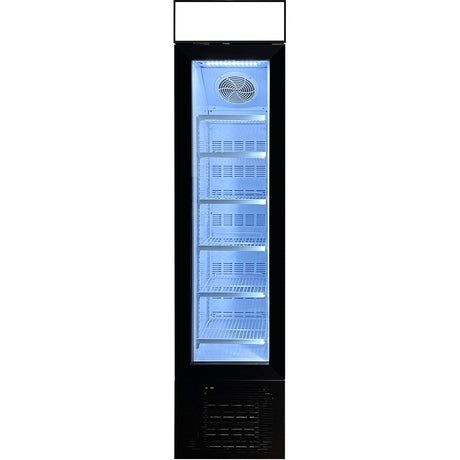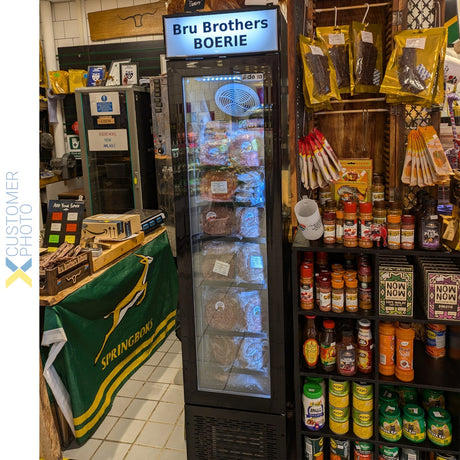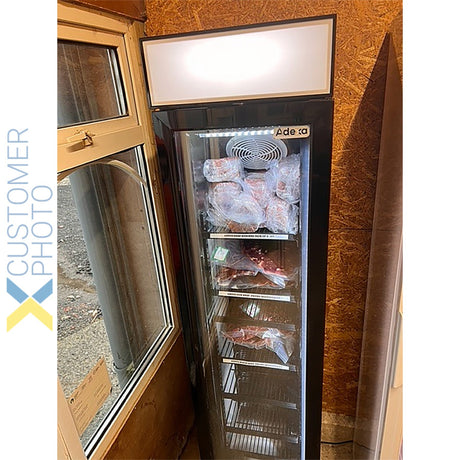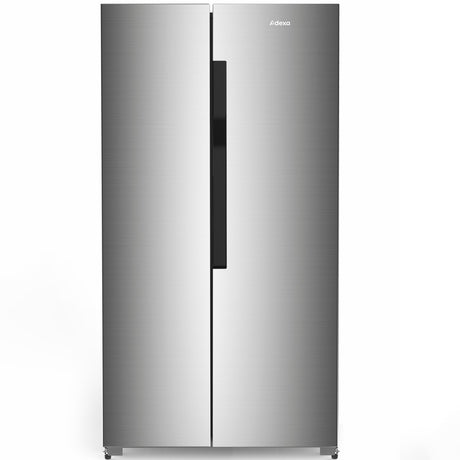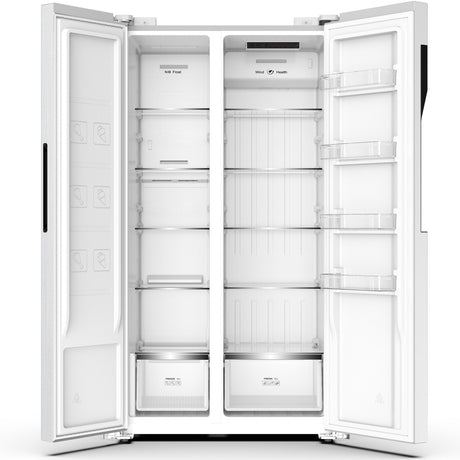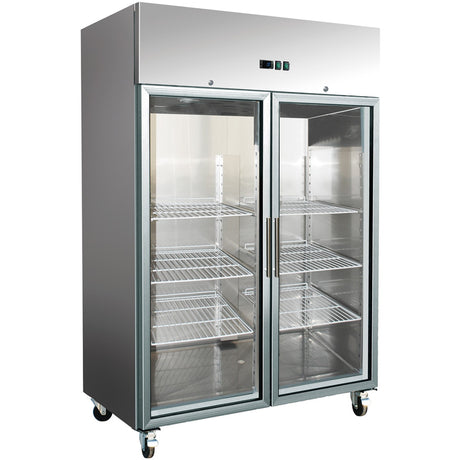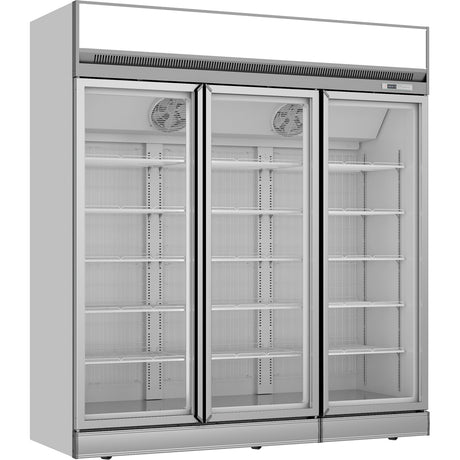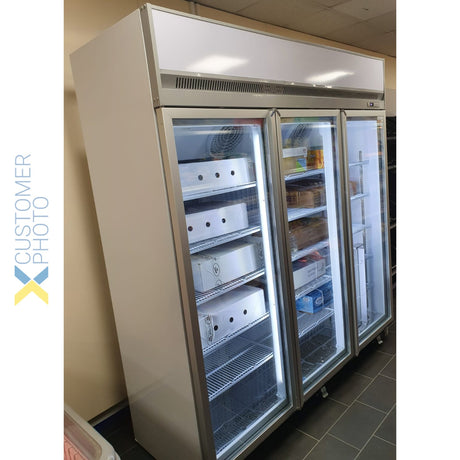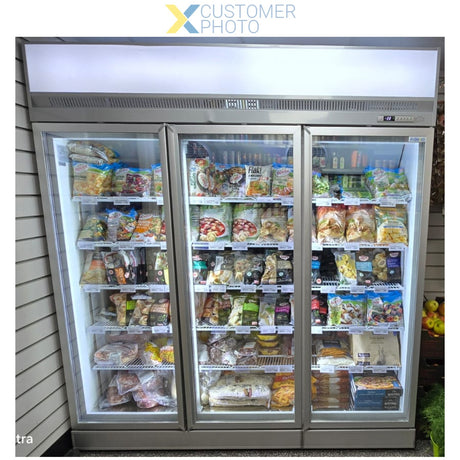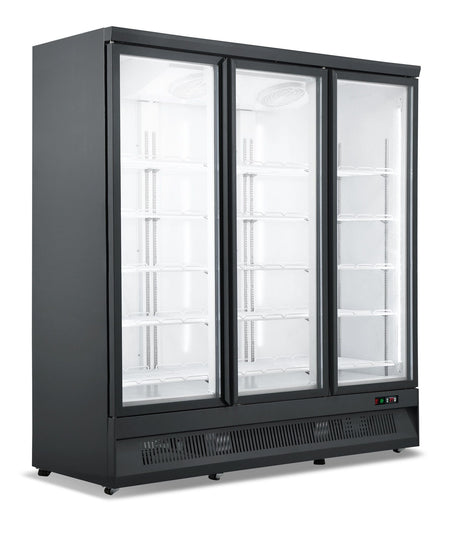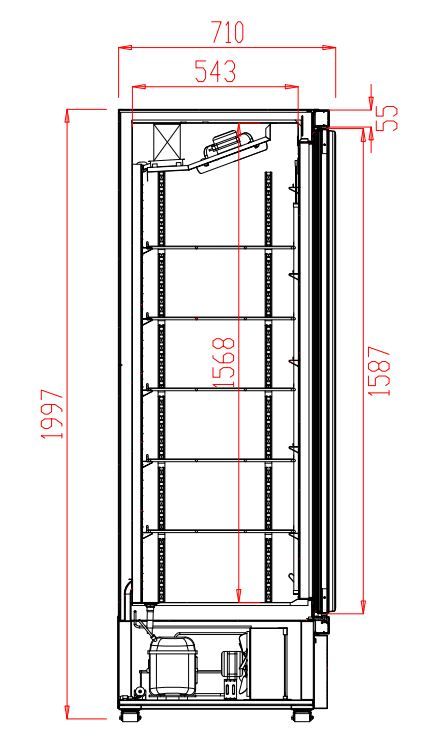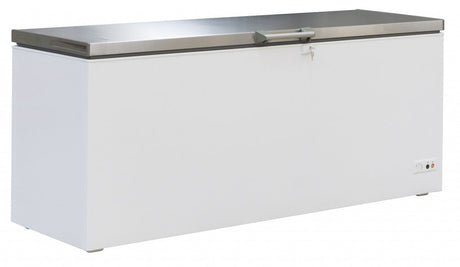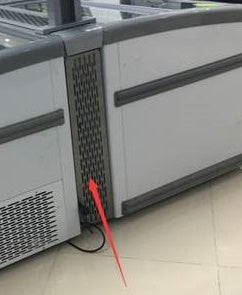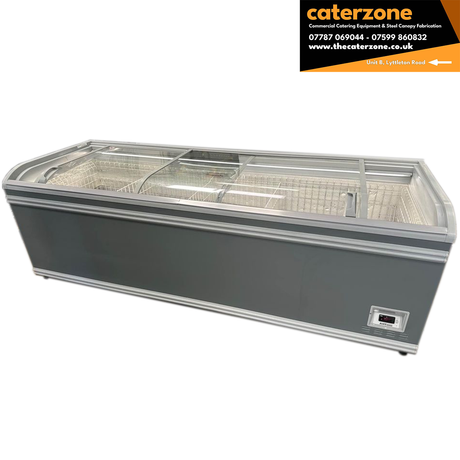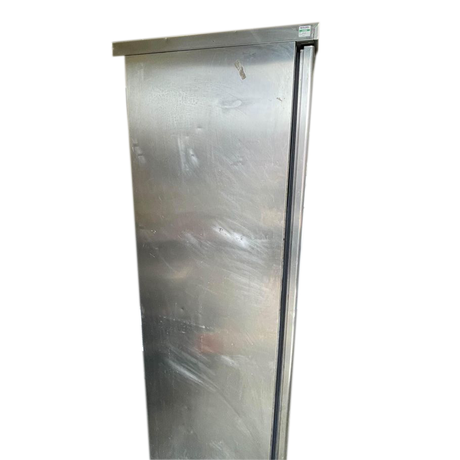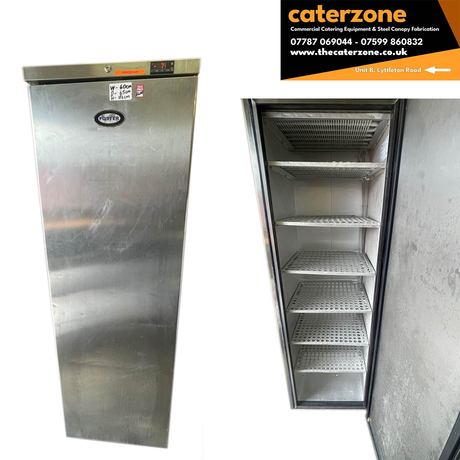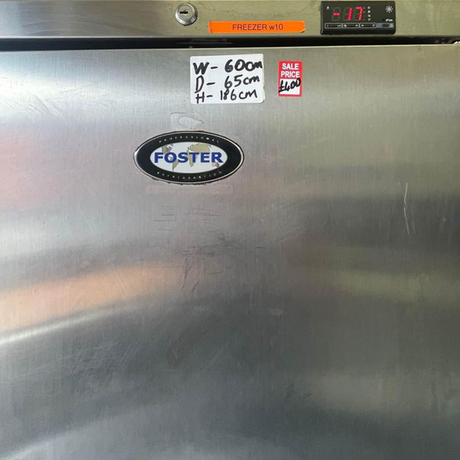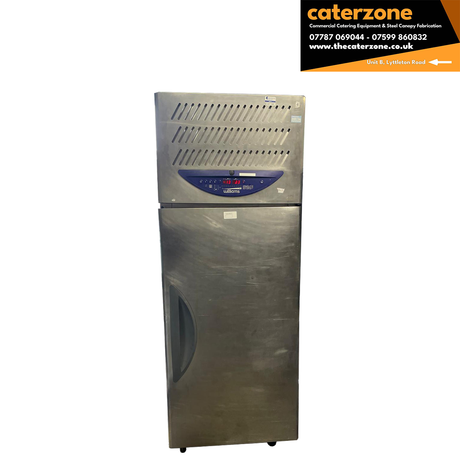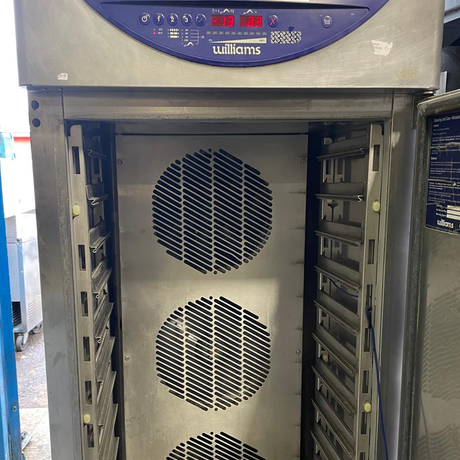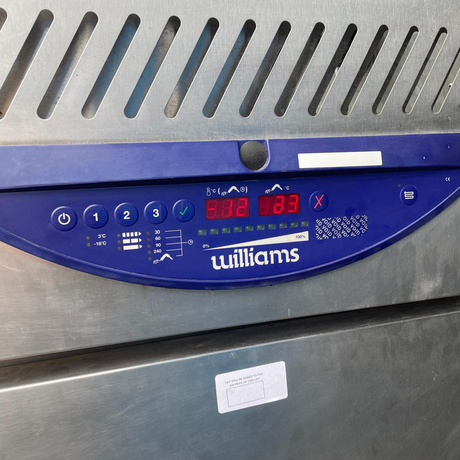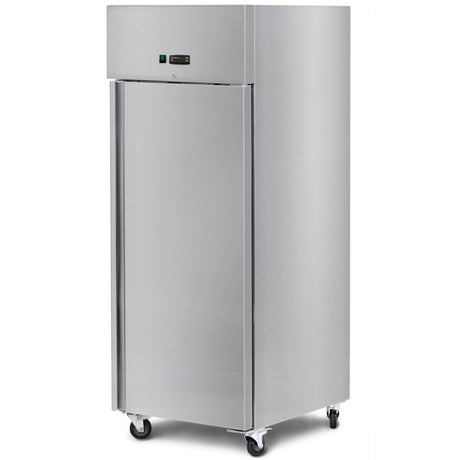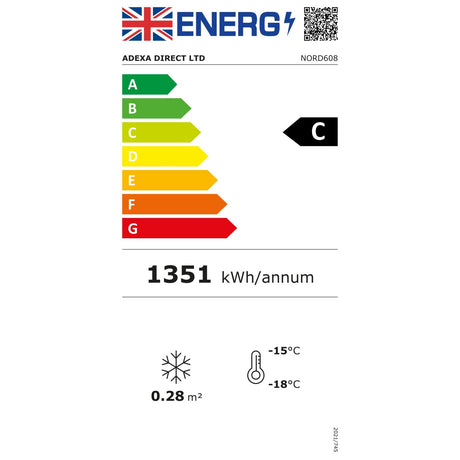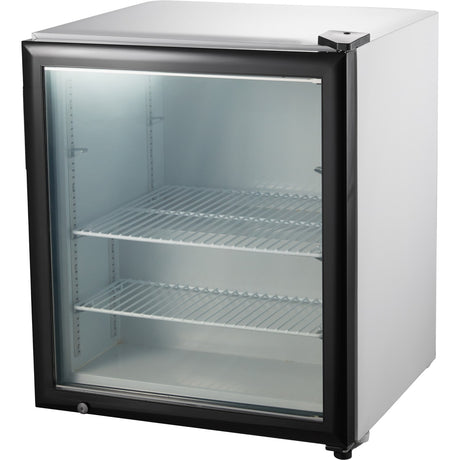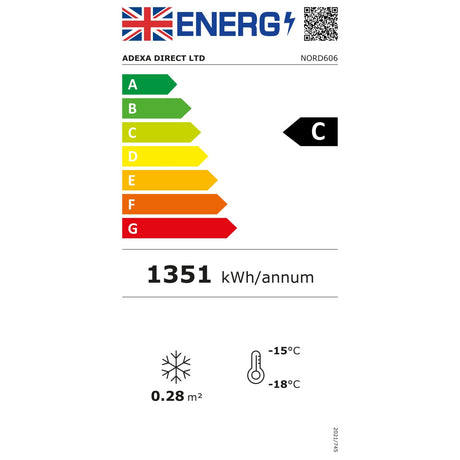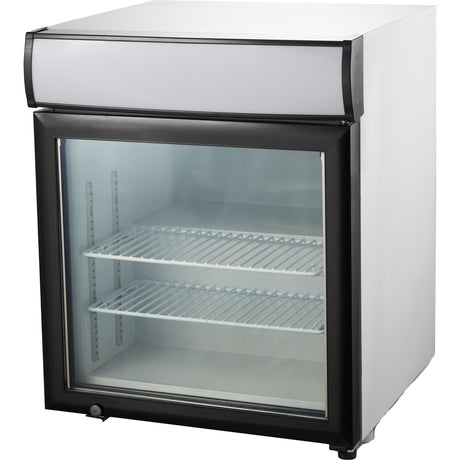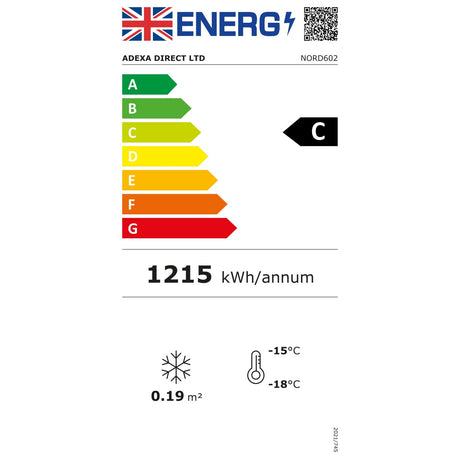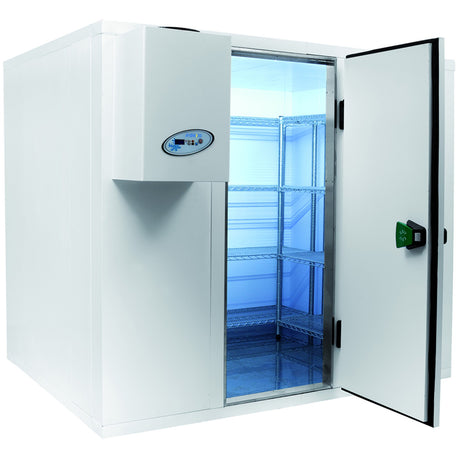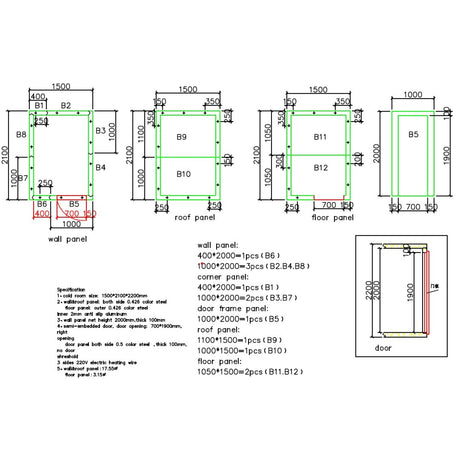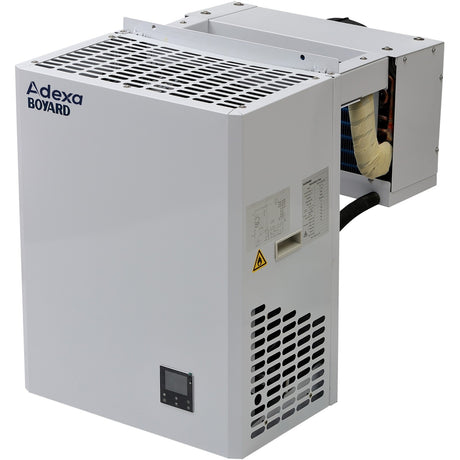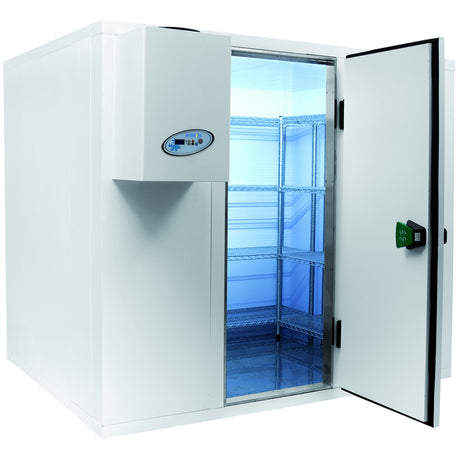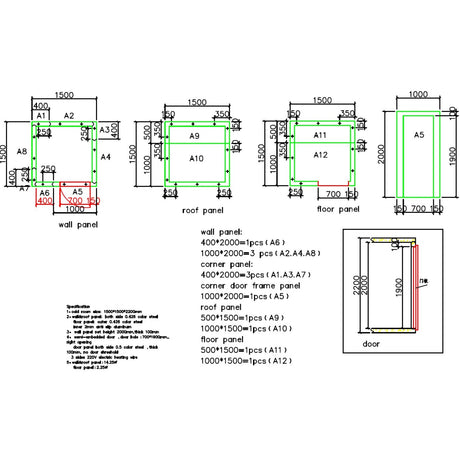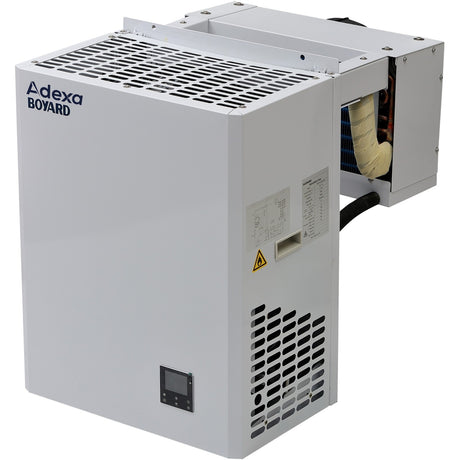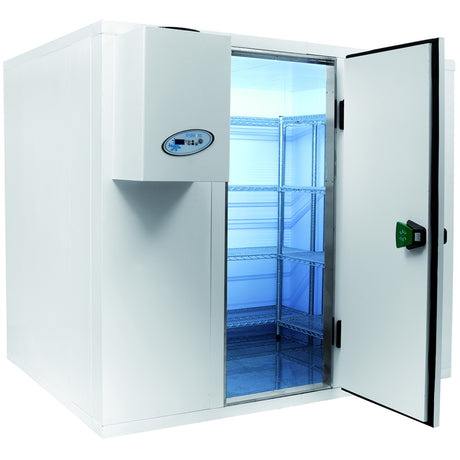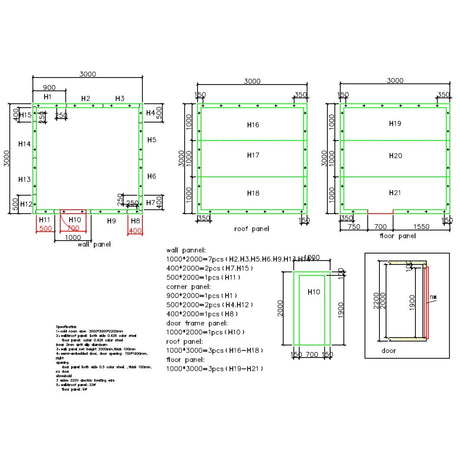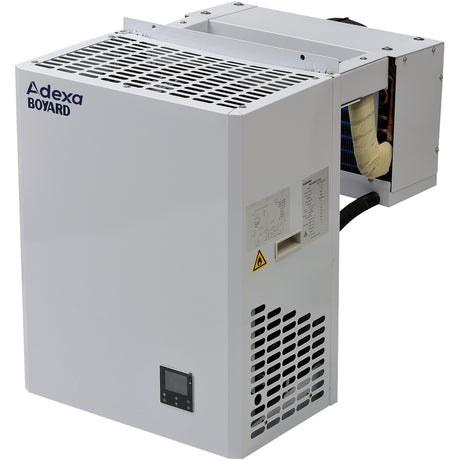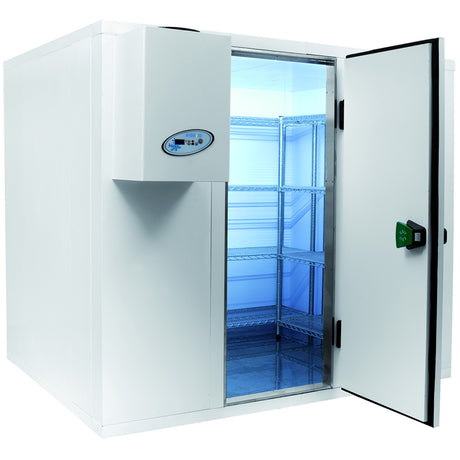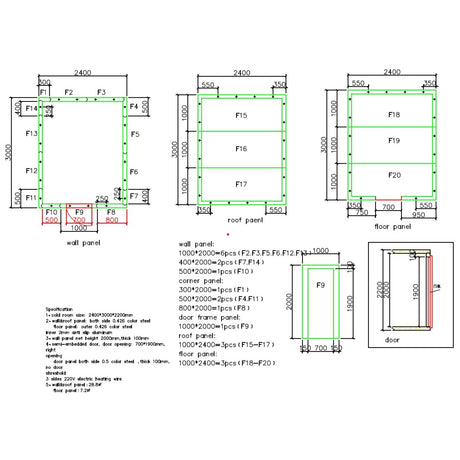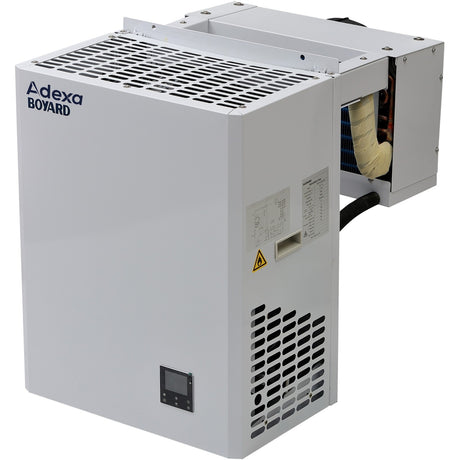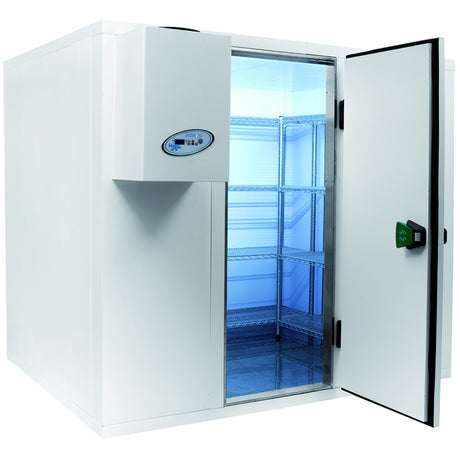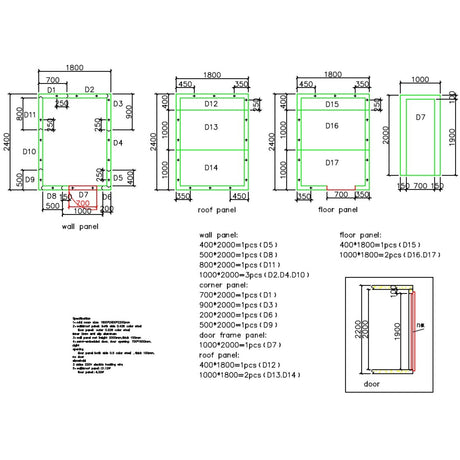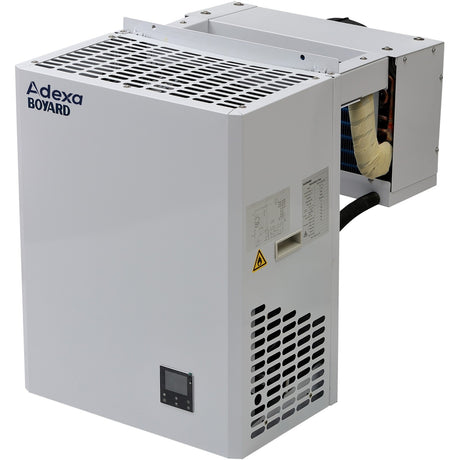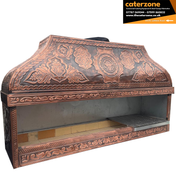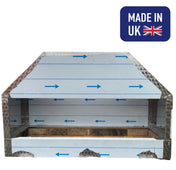UK CATERING
Commercial Chest Freezer Solid White Lid 295 Litres | Bd300
In stock (89 units)Sale price £297.95 Regular price £578.00Unit price /UnavailableCombisteel
Very low stock (7 units)Sale price £2,317.90 Regular price £2,380.90Unit price /Unavailable- Sold outNew arrival
UK CATERING
620lt Commercial Freezer Stainless Steel Upright Cabinet Single Door | Sf600
In stock (111 units)Sale price £713.95 Regular price £1,043.10Unit price /UnavailableUK CATERING
Commercial Chest Freezer 307 Litres Solid Lid 1110x633x830mm White | Bcbd307
Sale price £275.95 Regular price £402.80Unit price /UnavailableUK CATERING
Commercial Display Chest Freezer Sliding Glass Lid 200 Litres | Sd200
Very low stock (2 units)Sale price £362.95 Regular price £530.10Unit price /UnavailableUK CATERING
Commercial Display Chest Freezer Curved Sliding Glass Lid 260 Litres | Ri360 A
Sale price £513.95 Regular price £828.40Unit price /Unavailable- £235.05 offNew arrival
UK CATERING
200lt Commercial Freezer Undercounter Stainless Steel Single Door | Dwf200 Ss
In stock (46 units)Sale price £362.95 Regular price £598.00Unit price /Unavailable - £511.05 offNew arrival
UK CATERING
600lt Commercial Freezer Upright Cabinet Stainless Steel Single Door | Dwf600 Ss
Low stock (14 units)Sale price £778.95 Regular price £1,290.00Unit price /Unavailable - £339.05 offNew arrival
UK CATERING
Chest Freezer Stainless Steel Lid 512 Litres | Xf512 Ja
In stock (49 units)Sale price £492.95 Regular price £832.00Unit price /Unavailable - Sold out£3,503.05 off
UK CATERING
Commercial Freezer Upright 1500 Litres Triple Hinged Glass Door Grey | Sdf1500
Sale price £2,338.95 Regular price £5,842.00Unit price /Unavailable - £629.05 offNew arrival
UK CATERING
Commercial Chest Freezer Double Stainless Steel Lid 850 Litres | Bd850 Ss
Very low stock (8 units)Sale price £908.95 Regular price £1,538.00Unit price /Unavailable - Sold out£403.05 off
UK CATERING
Commercial Display Freezer Upright 105 Litres Hinged Glass Door Led Canopy Black | Sd105 B
Sale price £794.95 Regular price £1,198.00Unit price /Unavailable - £572.05 offNew arrival
UK CATERING
Low stock (14 units)Sale price £625.95 Regular price £1,198.00Unit price /Unavailable UK CATERING
Low stock (16 units)Sale price £1,298.95 Regular price £3,480.00Unit price /Unavailable- £2,574.05 offNew arrival
UK CATERING
Commercial Display Freezer 1563 Litres Triple Hinged Doors Top Mount | Ff777 Top
Very low stock (6 units)Sale price £2,403.95 Regular price £4,978.00Unit price /Unavailable - Sold out£243.95 off
Combisteel
Premium Triple Glass Door Display Freezer by Combisteel - Model SVO-1530F
Sale price £3,559.95 Regular price £3,803.90Unit price /Unavailable - £28.00 offNew arrival
Combisteel
Spacious 635L Combisteel Chest Freezer with Sleek Stainless Steel Lid - Model 7151.1125
Low stock (15 units)Sale price £1,042.90 Regular price £1,070.90Unit price /Unavailable Combisteel
Versatile Combisteel Chest Freezer for Island Use - No Head Element Required - Model 7455.2640
Very low stock (6 units)Regular price £94.90Unit price /Unavailable- £2,324.05 offNew arrival
Caterzone
AHT Freezer Sliding Glass Door 250cm - Refurbished
Very low stock (2 units)Sale price £1,425.95 Regular price £3,750.00Unit price /Unavailable - Sold outNew arrival
Caterzone
Foster freezer Single Door Refurbished W60xD65xH186cm
Regular price £456.95Unit price /Unavailable - Sold out£5,574.05 off
Caterzone
Williams Blast Chiller Freezer Refurbished
Sale price £3,325.95 Regular price £8,900.00Unit price /Unavailable - £270.85 offNew arrival
UK CATERING
Chest Freezer Solid Stainless Steel Lid 562 Litres | Bd505 Ja
In stock (54 units)Sale price £587.95 Regular price £858.80Unit price /Unavailable - £225.45 offNew arrival
UK CATERING
Chest Freezer Solid Stainless Steel Lid 345 Litres | Bd355 Ja
In stock (37 units)Sale price £488.95 Regular price £714.40Unit price /Unavailable - £151.65 offNew arrival
UK CATERING
Commercial Chest Freezer Stainless Steel Lid 282 Litres | Bd282 Ja
In stock (58 units)Sale price £330.95 Regular price £482.60Unit price /Unavailable UK CATERING
Commercial Chest Freezer 798 Litres Solid Lid 1934x845x910mm White | Bcbd798 X
Low stock (9 units)Sale price £682.95 Regular price £997.50Unit price /UnavailableUK CATERING
Commercial Chest Freezer 546 Litres Solid Lid 1530x735x850mm White | Bcbd546
Sale price £491.95 Regular price £718.20Unit price /UnavailableUK CATERING
Commercial Chest Freezer 446 Litres Solid Lid 1280x735x850mm White | Bcbd446
In stock (32 units)Sale price £414.95 Regular price £606.10Unit price /UnavailableUK CATERING
Commercial Chest Freezer Solid White Lid 197 Litres | Bd205 A
Sale price £289.95 Regular price £423.70Unit price /Unavailable- £1,970.55 offNew arrival
UK CATERING
Freezer Room With Freezing Unit 2100x1800x2010mm Volume 5.9m3 | Fr2118201
Very low stock (1 unit)Sale price £4,270.95 Regular price £6,241.50Unit price /Unavailable - £2,316.85 offNew arrival
UK CATERING
Freezer Room With Freezing Unit 1800x2100x2010mm Volume 5.9m3 | Fr1821201
Very low stock (1 unit)Sale price £5,020.95 Regular price £7,337.80Unit price /Unavailable UK CATERING
Blast Chiller/Shock Freezer 10x Gn1/1 | Bf610
Low stock (17 units)Sale price £2,888.95 Regular price £4,221.80Unit price /Unavailable- £855.45 offNew arrival
UK CATERING
Blast Chiller/Shock Freezer 5x Gn1/1 | Bf310
Low stock (16 units)Sale price £1,853.95 Regular price £2,709.40Unit price /Unavailable - £83.15 offNew arrival
UK CATERING
Fridge With Freezer Compartment 122 Litres Undercounter White | Bc122
In stock (31 units)Sale price £180.95 Regular price £264.10Unit price /Unavailable - £498.85 offNew arrival
UK CATERING
307 Ltr 2 Door Stainless Steel Freezer Prep Counter With Upstand | Norcold846
Very low stock (2 units)Sale price £1,081.95 Regular price £1,580.80Unit price /Unavailable - £475.75 offNew arrival
UK CATERING
307 Ltr 2 Door Stainless Steel Freezer Prep Counter | Norcold840
Very low stock (3 units)Sale price £1,030.95 Regular price £1,506.70Unit price /Unavailable UK CATERING
Very low stock (1 unit)Sale price £1,089.95 Regular price £2,050.10Unit price /Unavailable- £255.45 offNew arrival
UK CATERING
Low stock (19 units)Sale price £553.95 Regular price £809.40Unit price /Unavailable - £231.35 offNew arrival
UK CATERING
Commercial Countertop Display Freezer 98 L Single Glass Door Black 610x568x721mm | Nord606
Low stock (19 units)Sale price £503.95 Regular price £735.30Unit price /Unavailable - £223.65 offNew arrival
UK CATERING
Low stock (20 units)Sale price £486.95 Regular price £710.60Unit price /Unavailable - £203.95 offNew arrival
UK CATERING
Commercial Countertop Display Freezer 60 L Single Glass Door Black 570x560x575mm | Nord602
Low stock (16 units)Sale price £443.95 Regular price £647.90Unit price /Unavailable - Sold out£1,755.45 off
UK CATERING
Sale price £3,803.95 Regular price £5,559.40Unit price /Unavailable - £1,616.55 offNew arrival
UK CATERING
Very low stock (1 unit)Sale price £3,503.95 Regular price £5,120.50Unit price /Unavailable - Sold out£2,496.05 off
UK CATERING
Sale price £5,407.95 Regular price £7,904.00Unit price /Unavailable - Sold out£2,288.55 off
UK CATERING
Sale price £4,959.95 Regular price £7,248.50Unit price /Unavailable - Sold out£1,915.75 off
UK CATERING
Sale price £4,150.95 Regular price £6,066.70Unit price /Unavailable - Sold out£1,724.55 off
UK CATERING
Sale price £3,737.95 Regular price £5,462.50Unit price /Unavailable - New arrival
Hamoki UK
221004 - Upright Double Door Freezer - 1375L (GN1410BT)
Very low stock (4 units)Regular price £2,248.00Unit price /Unavailable

